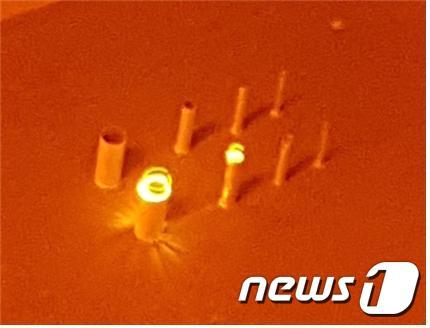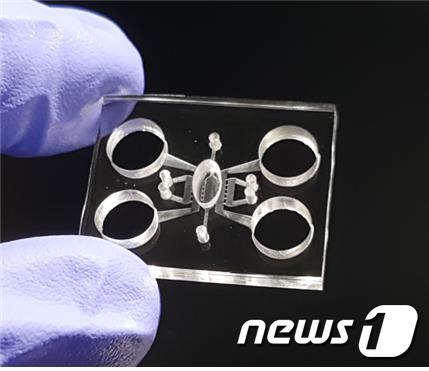Department News
[News 1] Prof. Seung Hwan Ko & Noo Li Jeon’s Research Team Develops Laser Technique for Transparent Polymer Material
SNU Research Team Develops Laser Technique for Transparent Polymer Material
New Prospects for Biochips and Microfluidics

PDMS machining by successive laser pyrolysis (Provided by: National Research Foundation of Korea)© News 1
A research team led by Seoul National University Professors Seung Hwan Ko and Noo Li Jeon has developed a high-speed laser machining technique for fast biochip manufacturing.
PDSM is a transparent polymer material used in a variety of areas including biology, medical sciences, pharmacy, material engineering, and mechanical engineering.
Due to its excellent bio-compatibility, it is recently being used in organ-on-a-chip device research, which is a testbed substituting human test subjects in medical and pharmaceutical research.
The current process consists of molding, pouring liquid PDMS resin into a frame.
But as it is time-consuming and expensive, researchers have been working developing laser processing techniques that could replace the process.
Especially the high transparency over a wide range of wavelengths poses a challenge in making the laser penetrate the PDMS.

3D biochip manufactured by successive laser pyrolysis (Provided by National Research Foundation of Korea) © News 1
The research team used successive laser pyrolysis to quickly process PDMS, paving the way for a more sophisticated manufacturing of biochips.
The team focused the fact that the pyrolysis of PDMS produced an opaque material.
This material absorbs the laser more efficiently than the transparent PDMS, thereby triggering a new photothermal reaction.
Using this phenomenon, the research team was able to develop a high-quality PDMS machining technique using a continuous-wave laser.
This technique can dramatically reduce the current photolithographic process, which takes at least two days, to within an hour.
It could be utilized in a variety of fields using PDMS including △biochips △microfluidics △soft robotics.
The research was published the August 17 issue of Nature Materials.

